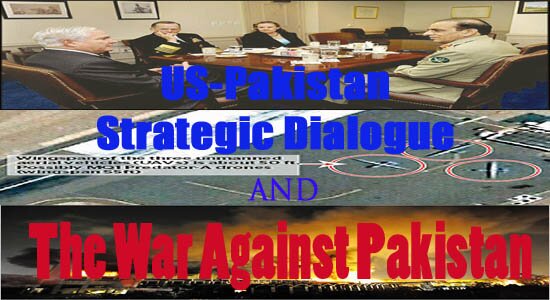
 Print This Post
Print This Post  Email This Post
Email This Post

Tokyo is asking Pakistan to sign NPT while condoning nuclear sale to India. The move will worsen global nuclear proliferation. Unfortunately, like the US, Japan’s record on nuclear safety is not too good.
BY SHIREEN M. MAZARI | Wednesday, 27 October 2010.
WWW.PROJECTPAKISTAN21.ORG
ISLAMABAD, Pakistan—Non-proliferation has over time become increasingly discriminatory and a vehicle for the powerful to pressurize states they consider “unreliable”, and the fact that these targeted states happen to be primarily Muslim states, with the sole exception of North Korea, reflects a further bias within the developed world. In fact, the accommodating manner in which the US has treated North Korea’s open defiance of the NPT in contrast to the treatment meted out to Iran which has stayed within its NPT obligations and continuously reiterated its abhorrence of nuclear weapons, only bolsters the perception that Muslim states are being targeted by the US and its allies on multiple fronts, especially post-9/11. The Indo-US nuclear deal, and the repercussions of it within the IAEA and Nuclear Suppliers’ Group (NSG), has brought all these contradictions and dualities out into the open.
However, what has been a rude shock for many has been the growing duplicity of Japan on nuclear-related issues. Post-1945 Japan has ostensibly maintained a strong anti-nuclear posture given how it is the only country to have actually suffered nuclear attacks – courtesy the United States. Yet, over a period of time Japan is moving out of the shadows of its professed anti-militarist position as it develops a vibrant arms industry, partners the US in Missile Defense and maintains one of the largest peaceful nuclear programs in the world. As if that was not enough to worry neighbors like China and the Koreas, who still recall the bitter legacy of Japanese militarism, Japan has also begun adopting a dual approach on the nuclear issue with an unstinting opposition to Pakistan’s nuclear program, but the beginnings of an accommodation to the far more extensive Indian nuclear program. Most recently, this has been reflected in the outcome of the meeting between the Japanese and Indian premiers in Tokyo which not only resulted in a trade pact, but also the promise of Japanese export to India of its state-of-the-art nuclear technology.
India, as a result of its nuclear deal with the US, has become a vast market for nuclear exports and countries like France and the UK are casting aside their superfluous non-proliferation concerns in order to gain access to this market – with the US clearing the NSG and IAEA hurdles. For the Japanese, the road is less smooth because there is still a strong anti-nuclear weapons lobby within Japan. Yet the Japanese Premier, Naoto Kan, is undeterred and stated that India and Japan had “agreed to speed up negotiations for civil nuclear energy cooperation while seeking India’s understanding of our country’s sentiment as a nuclear-bombed nation.” So, unlike the demands on Pakistan by the Japanese to sign the NPT and CTBT, no such demand is being made on India – only an apologetic appeal for Indian understanding as to why the Japanese will take a little more time to give India sensitive nuclear technology.
On further scrutiny, it is easy to find that Japan has long harbored nuclear ambitions and its nuclear program has been developed in such a way that it is barely a “screwdriver’s turn” away from possessing nuclear weapons. So far, it has suited Japan to have a “nuclear ready” status without actually taking the last and final step in that direction. That is why, at a Pugwash Conference in Beijing a few years earlier, one heard the North and South Korean participants decry Japanese plans to build the controversial Rokkasho reprocessing plant, which has now become operational and is the first industrial-scale reprocessing plant in a non-nuclear weapon state (NNWS). As a matter of fact, Japan possesses massive amounts of excess plutonium because it also has a large fast-breeder program, which allows stockpiles of fissile material to be built up. In December 1995, Japan was reported to have 4.7 tons of plutonium – enough for 700 nuclear warheads. Japan also has an indigenous nuclear enrichment plant – something the Indians are still seeking to perfect – which can also provide enriched uranium for nuclear weapons production. Japan has also developed the M-V three-stage solid fuel rocket, similar in design to the US LGM-118A Peacekeeper ICBM, which could serve as a ready delivery vehicle. In addition, Japan has been involved in developing the latest fighter aircraft with the US also. So, it has all the nuts and bolts in place if it chooses to go nuclear. Already, there is a growing move to do away totally with the constitutional restrictions on Japan developing a full-scale military.
Unfortunately, like the US, Japan’s record on nuclear safety is not too good. Nuclear safety issues have been more acute in Japan which has had a series of nuclear accidents. The following incidents relating to nuclear safety issues in Japan once again highlights the fact that so far globally it is the more developed industrial states that seem to have had more extensive safety problems in terms of their nuclear installations.
According to the record on the Greenpeace website, between 1975-1995, the following nuclear accidents took place in Japan:
- 1975: Release of radioactivity from Japan’s Mihama nuclear power plant.
- 1979: Two workers suffer radioactive contamination at Japan’s Tokaimura nuclear complex.
- 1986: 12 people receive “slight” plutonium contamination, while inspecting a store room at the Tokaimura nuclear complex.
- 1991: Rupture of steam generator pipe causes release of radioactivity at Mihama nuclear power plant.
- 1991: Reactor shut-down due to break of control system at Japan’s Sendai nuclear power plant.
- 1991: Release of radioactivity from Japan’s Fukui nuclear power plant.
- 1993: High pressure steam accident kills one worker and injures two others at Japan’s Fukushima nuclear power plant.
- 1995: Fire due to leakage of sodium coolant from the Monju fast breeder reactor. The Japanese nuclear industry attempted to cover up the full extent of the accident and the reactor was shut-down.
Moreover, on September 30, 1999, an accident at a uranium-processing facility in Tokaimura, 70 miles northeast of Tokyo, occurred. The accident was triggered when three workers used too much uranium to make fuel and set off an uncontrolled atomic reaction. A total of 439 people, including nearby residents, were believed to have been exposed to radiation. (http://www.atomicarchive.com/Reports/Japan/index.shtml) Again, days after an earthquake, on July 24, 2000, the Tokyo Electric Power Company found 29 gallons of radioactive water leaking from a nuclear reactor at the Fukushima No 1 plant in northern Japan (USA Today, July 17, 2007). The story repeated itself on September 17, 2003, when officials at the Chuba Electric Power’s Hamaoka plant in central Japan discovered that about 1.6 gallons of radioactive water had leaked from one of the reactors. In November 2001, the same reactor was shut down after two radioactive leaks occurred within three days. Even more disturbing was the fatal accident that took place at the Mihama plant on August 29, 2004, killing at least four people. There was no leak of radioactivity, but as the Greenpeace website pointed out, it was the deadliest accident in a catalogue of nuclear scandals in Japan. Seven workers were also injured due to the steam leak, possibly caused by a lack of cooling water in the reactor. These safety problems have continued to haunt Japan’s nuclear facilities and in July 2007, Japan had to suspend operations at the nuclear plant near Kashiwazaki, after a radiation leak and other damage from a deadly earthquake raised new concerns about the safety of the nation’s accident-plagued nuclear industry (The New York Times, July 18, 2007).
Despite being a signatory to the NPT, because Japan continues to expand its civil nuclear base, issues of safety will be a source of concern within its immediate Asian neighborhood. Moreover, in the context of the threat of nuclear terror from non-state actors, Japan can be extremely vulnerable because it was in Japan that chemical weapons terrorist attacks took place in 1994 and 1995 by a group calling itself Aum Shinrikyo, presently on the US terrorist groups’ list.
With such a record, is it not time for Japan to stop its hypocrisy on the nuclear issue and treat Pakistan and India on an equal footing in terms of nuclear assistance? There is no credibility either in Japan’s non-proliferation posturing or its concerns over nuclear safety vis-à-vis Pakistan – especially with its nuclear cooperation talks with India.
This paper is based on an op-ed by the author in The Nation. Reach Dr. Mazari at callstr[at]hotmail.com
© 2010. Project For Pakistan In 21st Century. All rights reserved.
Circulation and distribution of this document is allowed for noncommercial use
in any medium, including quotes and references, without prior permission or royalty
provided this notice is preserved.







[...] This post was mentioned on Twitter by GeraldAnthro, Ahmed Quraishi. Ahmed Quraishi said: Unfortunately, like the US, Japan’s record on nuclear safety is not too good. Pakistani government, politicians… http://fb.me/xVlwYl2V [...]
[...] click here to comment at PakNationalists.com or read what others have said about this [...]